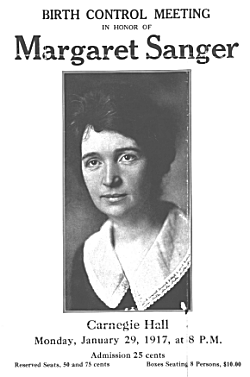 FRESH AIR
FRESH AIR
The first birth control clinic in the United States opened in 1916. It was operated by Margaret Sanger, who started the clinic after becoming outraged that she couldn’t give her patients — poor women in the tenements on New York City’s Lower East Side — information about contraceptive options. “Sanger [went] to these squalid, crowded homes of these young women bearing many children who are begging her — while giving birth — for information about contraception,” says historian Jill Lepore. “And it [was] illegal for her to give them any information.” Lepore’s latest New Yorker piece chronicles the history and politicization of birth control in America. “From the start,” she writes, “the birth-control movement has been as much about fighting legal and political battles as it has been about staffing clinics, because in a country without national health care, making contraception available to women has required legal reform.” Sanger was well aware of the legal battles. Before she opened her birth control clinic, she wrote a letter to New York’s district attorney, informing him that she planned to provide printed pamphlets about contraceptive options. Passing out such information was illegal under the 1873 Comstock Law, which prohibited the distribution of any printed information deemed obscene. “[The Comstock Act] classified all sorts of printed material as obscenity and specified contraception as obscene so that it [was] illegal to send through the U.S. mail … information, even in a philosophical sense, about reducing a woman’s fertility,” says Lepore. Nine days after Sanger opened her clinic in Brooklyn, an undercover police officer came in, posing as a mother who couldn’t afford to raise more children. Sanger sold the officer a copy of “What Every Girl Should Know,” a pamphlet about contraception and STDs. Shortly after, Sanger was arrested and sentenced to 30 days in prison. “The courts … ruled against her and said ‘A woman’s right to life gives her the right to not have intercourse with a man,’ ” says Lepore. “Sanger’s argument is that a woman has a right to have sex without fear of death [during childbirth]. And the court rules against her.” MORE

